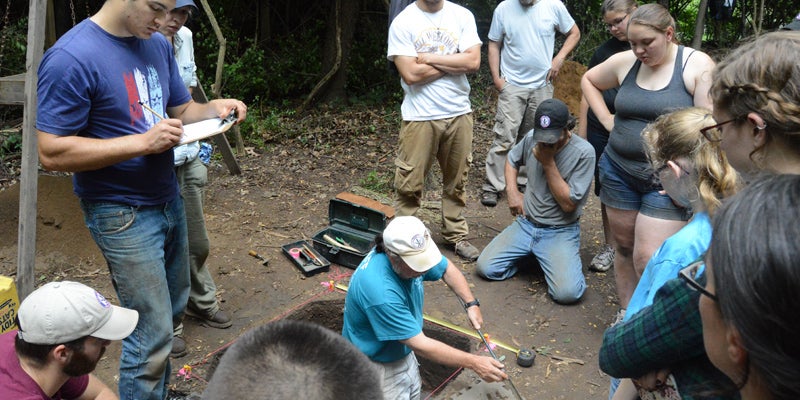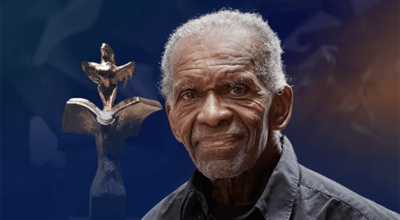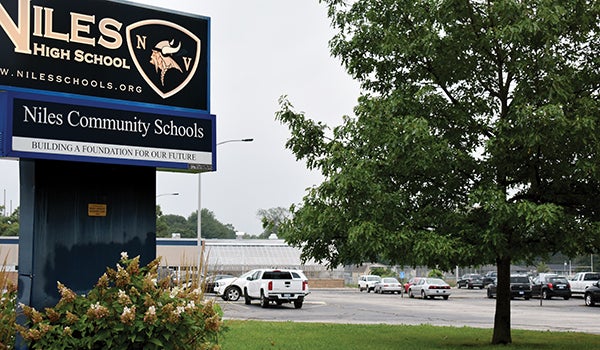Fort St. Joseph archaeology camp taking registrations
Published 10:51 am Wednesday, May 18, 2016

- Submitted photo — Campers participate in a past Fort St. Joseph archaeology camp.
Have you ever dreamed of finding buried treasure?
The City of Niles and Western Michigan University are offering the chance to experience the thrill of discovery during its camp programs this summer at the Fort St. Joseph Archaeological Project site in Niles.
Campers will learn about the history of the 17th Century fort and participate in all aspects of the dig, including wet screening, analyzing artifacts and mapping the site.
Christina Arseneau, director of the Niles History Center, said the camp provides an experience difficult to find anywhere else.
“For anyone who has ever thought of what it would be like as an archeologist, this is a way to actually get that experience,” she said.
The camps begin July 15 and run through Aug. 5. There are three different camps, including ones for middle school students, teachers, graduate students and lifelong learners.
To apply, visit Niles History Center’s website at nileshistorycenter.org and click on the Fort St. Joseph tab.
Organizers will begin reviewing applications June 1.
Arseneau said Tuesday that camper spots are filling up quickly, so people interested in attending should register as soon as possible. The cost for each camp is $150 and scholarships may be available for those who qualify.
Those who miss out on the camps can still get involved in the project.
During the 2016 field season, the public is invited to engage in several interactive and educational programs focusing on this year’s theme, “Flowing Through Time: Rivers in Historical and Archaeological Perspective.”
This year’s annual four-part lecture series begins at 7 p.m. Wednesday, July 20, at the Niles District Library.
Lectures include:
• July 20 — “Bark Canoes and Dugouts: Early Transportation on West Michigan Rivers,” by Kevin Finney, executive director, Jijak Foundation, Gun Lake Band of Potawatomi Indians
• July 27 — “Native American and Euro-American Settlements of the St. Joseph River Valley,” by Allison Hoock, M.A., Western Michigan University
• Aug. 3 — “A Plentitude of All Things. Resources of la Riviere St. Joseph,” by Terrance J. Martin, curator emeritus, Illinois State Museum
• Aug. 10 — “A History Runs Through It: Nine Millennia of Human Experience along the St. Johns River of Northeast Florida,” by Kenneth E. Sassaman, department of anthropology, University of Florida
One final way to get involved is to visit the Fort St. Joseph Archaeological Project’s open house from 10 a.m. to 4 p.m. Saturday, Aug. 6, and Sunday, Aug. 7, at the corner of Fort and Bond Streets in Niles. The free event, which is open to the public, allows attendees to meet WMU archaeologists, observe period demonstrations, explore the archaeological site, view recently uncovered artifacts and more.
Fort St. Joseph, founded in 1691, was an important French mission, trading post and military garrison until it was abandoned in 1781. During its time, the fort was controlled by four countries — France, Britain, Spain, and America — as well as multiple Native American Indian tribes, including the Potawatomi.
In 1998, Niles’ Support the Fort Committee called on WMU’s Dr. Michael Nassaney to conduct an investigation to locate Fort St. Joseph. Over the last 18 years, Nassaney and teams of WMU students have worked to uncover the history of Niles’ Fort St. Joseph in conjunction with WMU’s archaeological field school, which is certified by the register for professional archaeologists.
For more information, visit wmich.edu/fortstjoseph.






